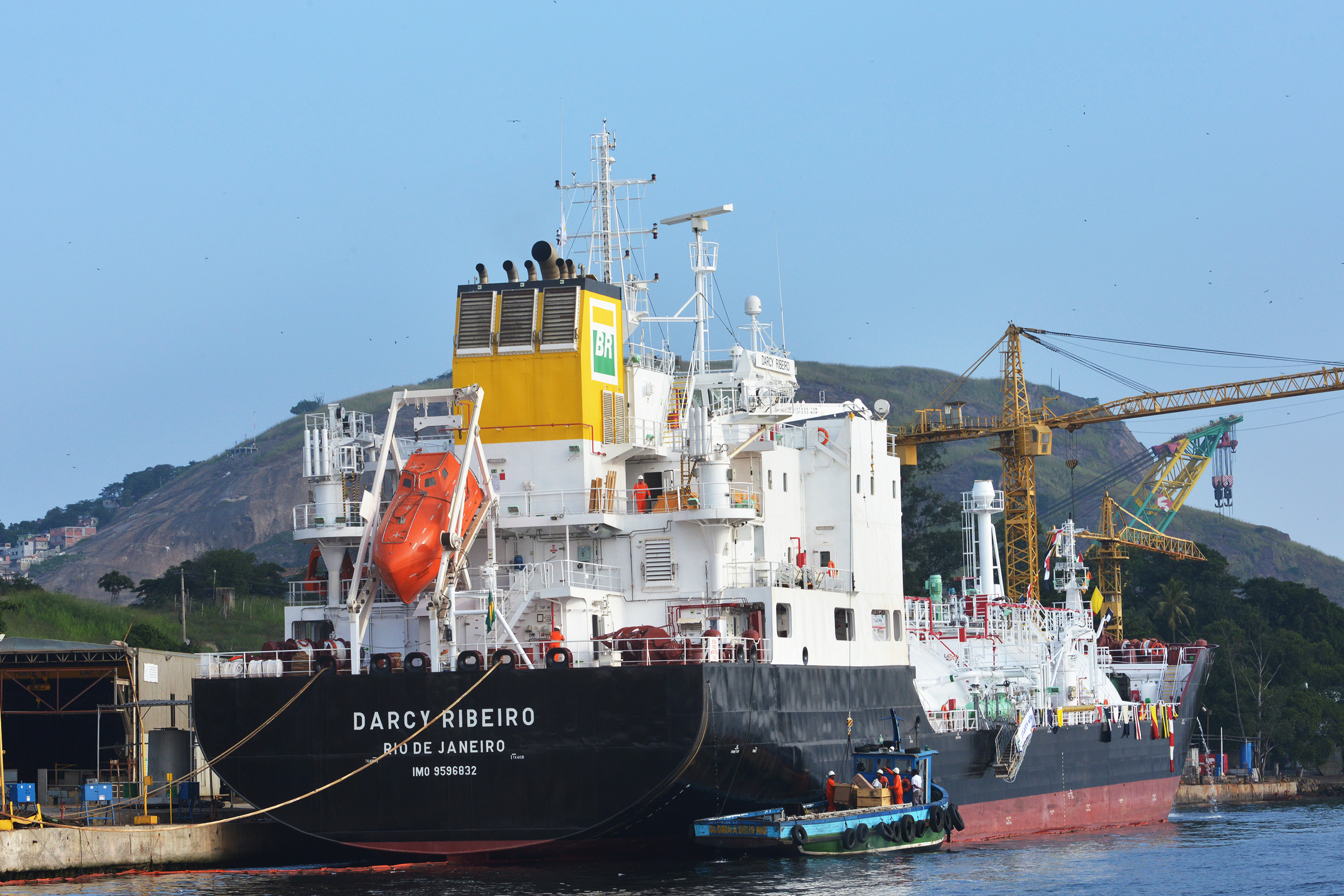The first bunkering with renewable content in the country was executed by the Darcy Ribeiro ship of Transpetro. The operation was performed Saturday (12/31), at the company terminal in Rio Grande, in the State of Rio Grande do Sul – Rio Grande Terminal (Terig). With lower carbon footprint the new fuel is a mixture of 90% of mineral origin and 10% biodiesel. The purpose of the test is to assess bunkering with the use of renewable content for two months and the logistic challenges associated with its use.
The renewable fraction of the new fuel has the potential of reducing greenhouse gas emissions regarding bunkering, when taking into account the complete life cycle. The estimated percentage of reduction in equivalent CO2 emissions of this mixture is approximately 7%.
Laboratory tests confirmed the feasibility of the mixture
In the first phase of the project, during tests performed in the Petrobras Research and Development laboratory (Cenpes), no impact on the meeting the main properties of the bunker fuel specification was observed.
The assessment of the quality of the burning and stability of the mixture indicated approval for the field test in a maritime vessel. There is an expectation that the ship operation will confirm the laboratory tests and occur without issues with engine, filter, and fuel purification system performance.
The IMO has bold goals for the sector
The IMO (International Maritime Organization), UN agency responsible for safety improvements in international maritime transportation and prevention of pollution by ships, has a goal to reduce, by 2050, the absolute greenhouse gas emissions by at least 50% (relative to 2008). Among the measures that may be adopted are the use of marine fuels with renewable component mixtures, which is one of the solutions being developed by Petrobras.
Starting in January initiative IMO 2023 will be in force, a program for the purpose of stimulating better efficiency in ships and the adoption of low carbon emission fuels. “With the IMO 2023 seal, vessels will start to be classified according to their level of energy efficiency and Transpetro has been investing in various solutions in recent years, with the focus on elevating our fleet to the best efficiency levels”, asserts Director of Engineering and Maritime and Land Technology of Transpetro, Jair Toledo, “To meet this indicator, we have invested in various improvements. The installation of thruster and hull appendages on our fleet ships and operational optimization actions, among others, allowed for a reduction of 7% in 2022 emissions compared to 2021, an important validation of the advances implemented in our quest for energy efficiency improvement”, he discloses.
In the maritime sector, depending on the percentage of biodiesel mixed in the fuel, few if any adaptations are needed on the vessels, which facilitates the adoption of this new product. With the field test, Petrobras will take one more step in order to contribute to the marketing of fuels with less impact on the environment.
Investments in low carbon projects
Petrobras will invest US$ 4.4 billion in projects focused on energy transition directed at low carbon initiatives, according to the new Strategic Plan for the 2023 to 2027 period. “We are working on a new generation of more efficient and lower greenhouse gas emission products and fuels, aligned with the demands from society. The development of bunker fuel with renewable content is an example of our commitment with the transition to a low carbon future”, states Sandro Barreto, Executive Manager for Internal Market Sales.

